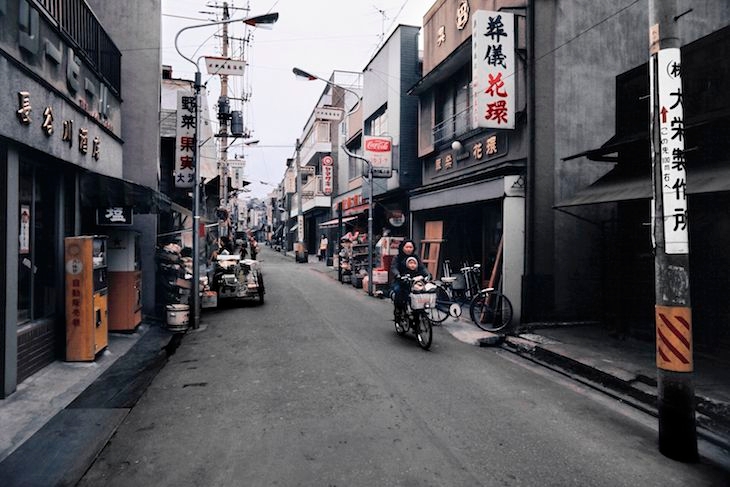Before her death two years ago, Yuko Tsushima was a powerful voice in Japanese literature; a strong candidate for the Nobel. The New York Times rated her ‘one of the most important Japanese writers of her generation’.
Tsushima relentlessly quarried her damaged life for her work: she was brought up by her mother after her writer father committed suicide. Abandonment is a recurring theme in her 17 novels, her protagonist often a single mother, as was Tsushima. Joltingly honest, she doesn’t spare herself or her readers.
Territory of Light charts a pivotal year in the life of a vulnerable young woman and toddler daughter — both unnamed — adrift in a hostile 1970s Tokyo. In 12 standalone chapters the narrator stumbles through a destructive separation, juggling the demands of life, job and parenthood. Flashes of past happiness are poignantly interwoven with her present despair.
Tsushima wields a delicate scalpel as she probes the mind of a perilously lonely woman taking refuge in sleep, alcohol and casual sex. She is exploring the role of women, marginal in an inherently patriarchal society, illustrating the otherness of Japanese life at the time, when an abandoned woman faced disapproval, tacitly accepting responsibility — and guilt — for her predicament. Low self-esteem was a given. In a prickly encounter between the estranged couple the wife nervously wonders, is it all her fault? Is she a bad person? Is she bowing low enough? Tsushima once wrote: ‘Women are victims of how they were taught to behave.’
Fragmented, and rich in dreams and memories, the book is suffused with images of light and water. Pink mist hovers on the surface of a sea that ‘gleams like zinc’; a red floor blazes blindingly in the setting sun; a flat rooftop is transformed into a glittering lake where mother and daughter splash in ‘an ankle-deep sea’.
As the narrator spirals into breakdown, veering between maternal resentment and contrition, she recklessly neglects her daughter. One night, when the child is in bed, ‘after making sure she was asleep,’ her mother locks the front door and heads across town to a bar where she gets falling-down-drunk and vomits in the street. So many ways for disaster to strike here, with deepening anxiety for the reader. Geraldine Harcourt’s translation subtly conveys the narrator’s precarious grip on reality.
One Japanese critic has described Tsushimo as ‘an archaeologist of the female psyche’. Spiky, atmospheric and intimate, filled with moments of strangeness that linger in the mind like an after-image on the retina, Territory of Light is not a comforting read, but it will touch women across frontiers. I suspect men may pass by on the other side.






Comments